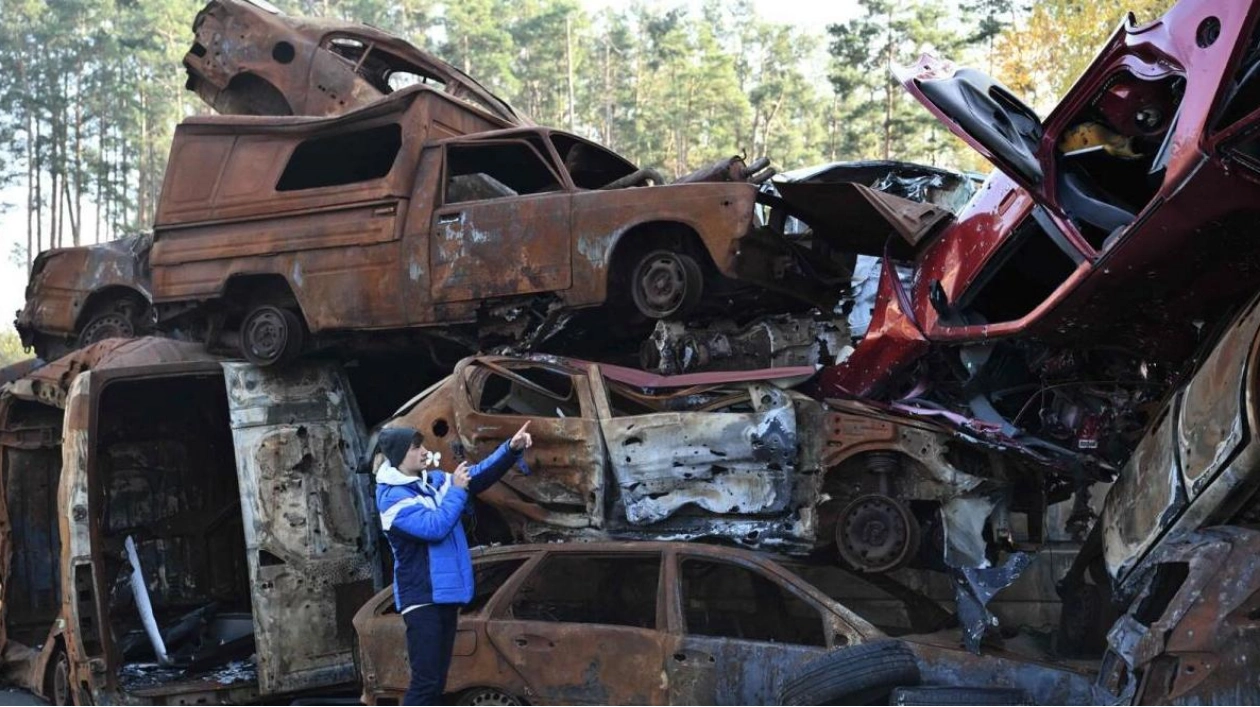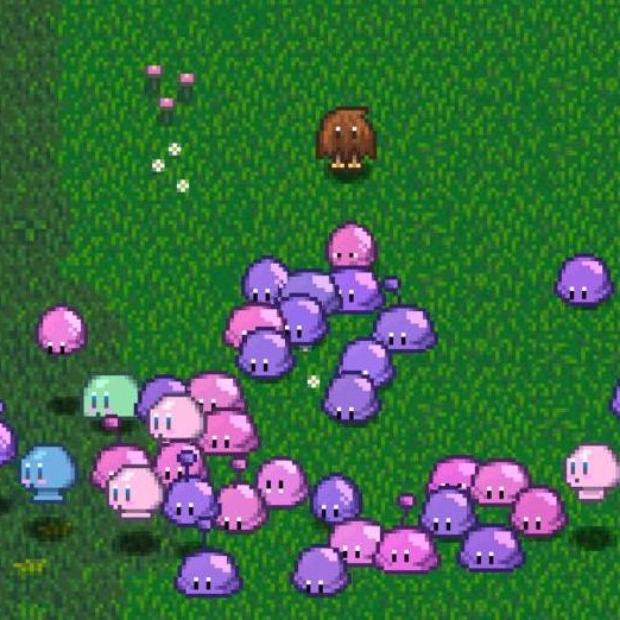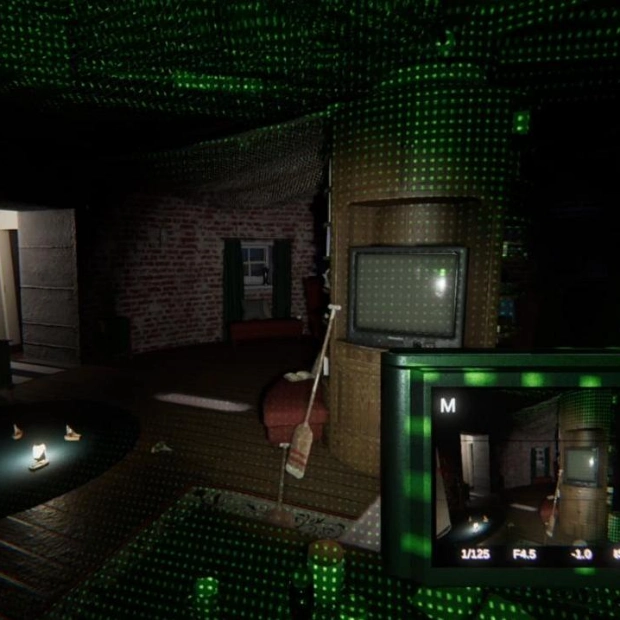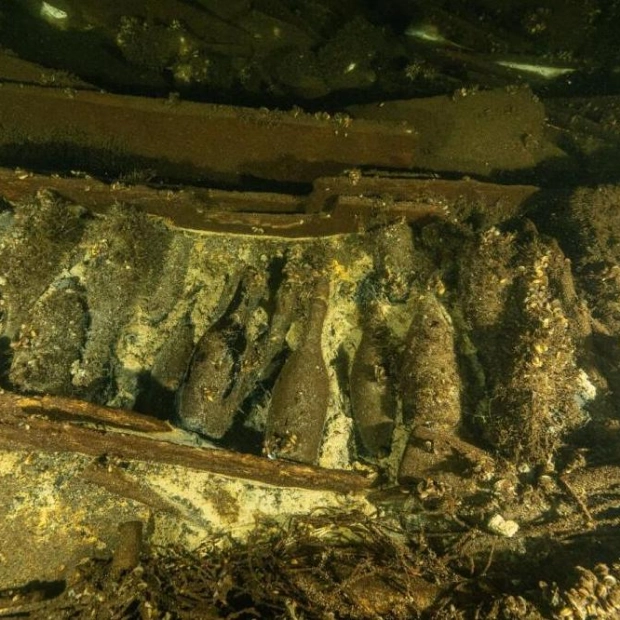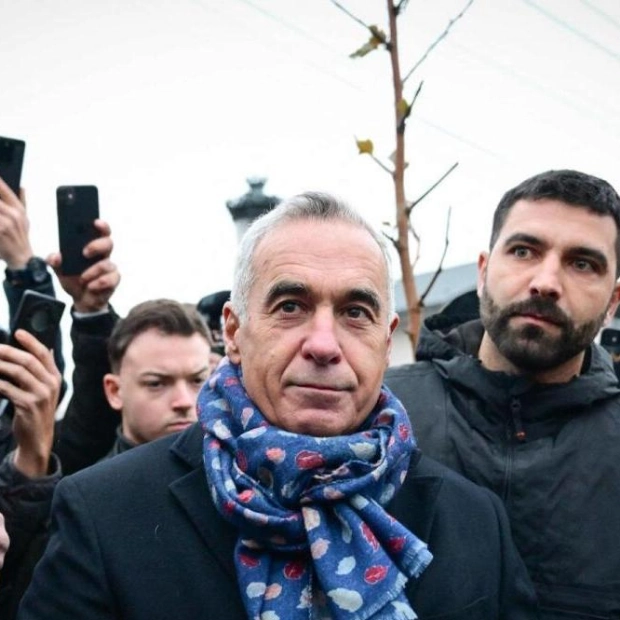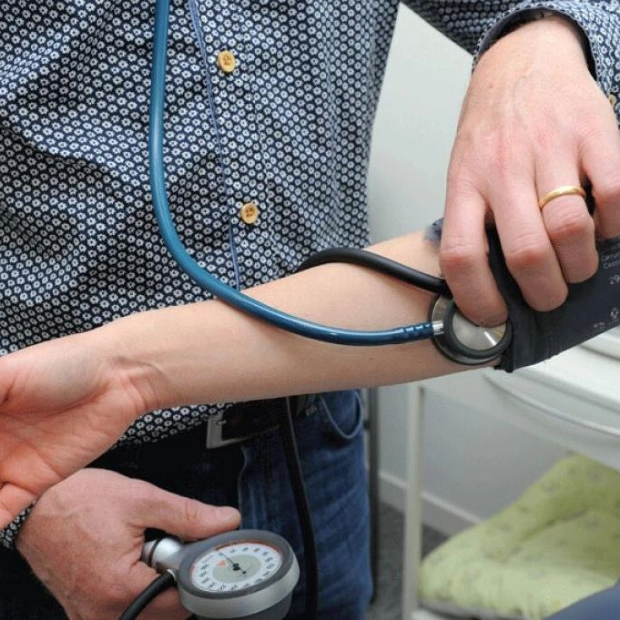Spanish traveler Alberto Blasco Ventas captures footage for his social media platforms at the symbolic cemetery of destroyed civilian vehicles during a tour in Irpin, near Kyiv, on November 7, 2024, amidst Russia's ongoing assault on Ukraine. AFP
Spanish traveler Alberto Blasco Ventas gazed upon the ruined Irpin bridge in Ukraine, which was blown up in 2022 to halt Russian troops and has since become a magnet for adventurous tourists visiting the country. Russian forces had intended to cross the bridge in their bid to capture Ukraine's capital, Kyiv, at the war's outset. The Russian army has since withdrawn hundreds of kilometers, yet continues near-daily missile and drone attacks on Kyiv, which Blasco Ventas selected as his vacation destination.
"It's my first time in a war zone," the 23-year-old software engineer admitted. "I'm a bit nervous, I won't deny it, because you can never predict what might happen."
Spanish traveler Alberto Blasco Ventas (L), local tour guide Oleksiy Goryachev (C), and co-founder of War Tours Dmytro Nykyforov pose beside the destroyed Irpin bridge during a tour in Irpin, near Kyiv, on November 7. AFP
Blasco Ventas was on a "dark tourism" excursion offered by one of several Ukrainian companies specializing in this niche but expanding sector, enabling tourists to visit sites of tragic events. To reach Ukraine, he disregarded his family's concerns and boarded a flight to Moldova, followed by an 18-hour train journey. The aspiring influencer documented every aspect of the trip, planning to upload it to his YouTube channel, which boasts 115,000 subscribers, where he has previously chronicled the "most horrific psychiatric hospital" in the United States and "the most perilous border" in the world, between China, Russia, and North Korea.
Prior to the war, Ukraine already attracted tens of thousands of tourists annually to Chernobyl, site of the world's worst nuclear disaster in 1986. Responding to critics who might view such trips as macabre or unethical, Blasco Ventas asserted he was acting "with respect." War Tours, which organized his visit, reported accommodating around 30 customers since January, primarily Europeans and Americans paying between 150 euros ($157) and 250 euros ($262) for the entire tour. A portion of the profits is donated to the army, according to company co-founder Dmytro Nykyforov, who emphasized the initiative was "not about money, but about memorializing the war."
Svitozar Moiseiv, manager of tourism company Capital Tours Kyiv, noted that profits are minimal but the visits hold educational value. "It's akin to a vaccine to prevent this from happening again," he said. The tours typically focus on Kyiv and its suburbs, which witnessed alleged massacres by Russian troops in early 2022. However, some companies venture closer to the front lines, including multi-day excursions in southern Ukraine costing up to 3,300 euros.
American Nick Tan, a finance professional for a New York tech company, was among those who sought to go beyond Kyiv. In July, he traveled to Kharkiv, Ukraine's second-largest city, which faces constant bombardment from Russian forces located about 20 km away. "I just wanted to see it because I believe life in the West is too comfortable and easy," the 34-year-old explained. He aimed to get closer to the front lines but was met with his guide's refusal. The self-described thrill-seeker had previously gone skydiving, regularly attended boxing classes and raves. "Jumping out of planes, partying all night, and punching people in the face just didn't satisfy me anymore. So what's the next best thing? Visiting a war zone."
His quest perplexed some residents of the war-torn Irpin suburb, who live under constant threat of Russian air attacks. "A Shahed drone recently crashed 300 meters from my house. I wouldn't want to experience that," said Ruslan Savchuk, 52. "But if people want that for themselves, it's their right," he added. Savchuk volunteers to advise Irpin on its tourism strategy.
"Even a challenging subject like war can lead to something positive," he said, noting that tourists could generate valuable income for local communities. However, Mykhailyna Skoryk-Shkarivska, local councillor in Irpin and former deputy mayor of Bucha, said most residents are okay with "dark tourism" but some view the profits as "blood money." "There are accusations -- 'Why do you come here? Why do you want to see our suffering?'" she said, recalling conversations with locals.
Mariana Oleskiv, head of the National Agency for Tourism Development, acknowledged that the development of war tourism raises many ethical questions but predicted the market would grow. Her agency was preparing specialized training for guides, as well as memorial tours in the Kyiv region. The Russian invasion immediately crippled the tourism industry, but sector revenues are expected to surpass those of 2021, a year marked by the coronavirus pandemic. This growth is largely driven by domestic tourism fueled by Ukrainian men of fighting age, who are generally not permitted to leave the country due to martial law. Ukraine even recorded four million foreign visitors last year, according to Oleskiv. The number is double that of 2022, but mainly consists of business travelers. Ukraine is already preparing for the post-war period, including by signing deals with Airbnb and TripAdvisor. "War has drawn attention to Ukraine, so we have a stronger brand. Everyone knows about our country," Oleskiv said.
Source link: https://www.khaleejtimes.com
